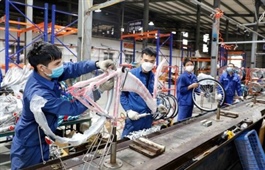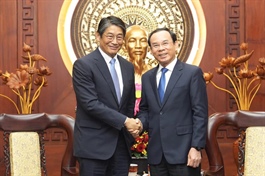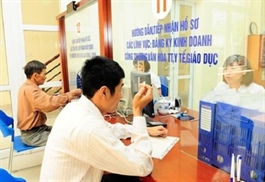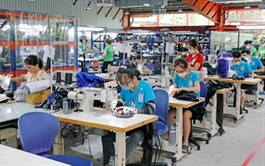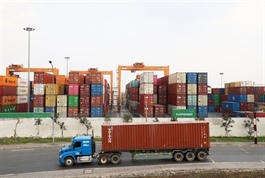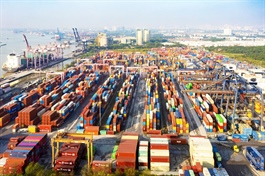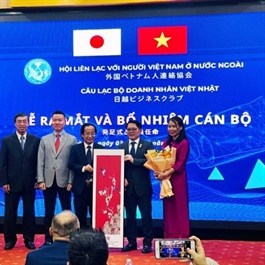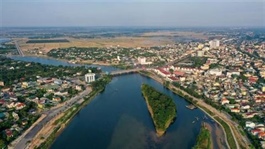Hanoi to expand IPs to welcome FDI
Hanoi to expand IPs to welcome FDI
Hanoi will continue to expand industrial park and cluster infrastructure to welcome foreign direct investment inflows.

After receiving approval for operation of Phung Hiep Industrial Park (IP) in Thuong Tin district, Hoa Phu Invest JSC is completing procedures to prepare for construction. The project, which covers almost 175 hectares, has an investment of $122 million.
Hanoi unveils digital app to connect citizens and businesses with all levels of government
The project is valid for 50 years and construction must be completed within 36 months from the date of land allocation or lease by the state.
Developing IPs and clusters is a major policy of Hanoi, according to Nguyen Manh Quyen, Vice Chairman of Hanoi People’s Committee, spoke at a press conference in late June. “Hanoi intends to build more IPs to attract foreign investment. The city will prioritise site clearance and accelerate the development of a comprehensive and modern infrastructure system,” he said.
“Moreover, relevant agencies will be instructed to improve the quality of investment promotion activities. Hanoi will conduct thorough audits to ensure that investors fully comply with the commitments made in their investment licences,” Quyen said.
Hanoi leaders have asked the Ministry of Planning and Investment to strengthen information sharing and continue to provide support, working closely with the capital to improve the effectiveness of attracting foreign investment.
At the same time, the city will organise implementation of 2022 regulations regulating the management of IPs and economic zones and a March 2024 decree on management and development of clusters, to help accelerate the progress of establishing new complexes in the area.
The city has plans to add nine IPs using over 2,900ha in the planning of the period from 2025-2030. Besides that, in the period, the city has plans to establish an additional 174 clusters.
Adding IPs and clusters in planning is necessary in the context that the current available land is filled, in collaboration with an increase in capital. According to Hanoi People’s Committee, the capital has 10 IPs across a total of 1,300ha, of which nine are fully occupied. The remainder are in the process of perfecting technical infrastructure.
In the first six months of 2024, foreign direct investment (FDI) flowing into Hanoi increased by 52 per cent over the same period last year, at $1.16 billion. There are 120 newly registered projects with worth just over $1 billion, 78 projects with a total additional registered capital of $55.21 million, and more than 100 capital contributions and share purchases with a value of $73.6 million.
By the end of the second quarter, Hanoi had just over 15,500 newly established enterprises worth $6.2 billion, a decrease of 3 per cent in the number of enterprises and the same ratio in registered capital compared to last year.
Hanoi aims to cultivate partnerships with key FDI markets, including South Korea, Singapore, Taiwan, the United States, Europe, Australia, and New Zealand.
In line with the Vietnamese government’s overarching strategy to boost investment promotion, Hanoi has undertaken comprehensive reforms aimed at attracting FDI across various sectors. The government’s focus is on high-added-value industries, such as manufacturing, logistics, tourism, education, healthcare, and clean energy.
To achieve this, Hanoi has set ambitious economic plans for key industries, with a particular emphasis on technology, construction projects, tourism, and urban development.
“To drive growth and achieve its investment targets, Hanoi seeks to attract up to $40 billion in FDI between 2021 and 2025, focusing on urban planning, clean water accessibility, and smart city initiatives,” Quyen said.
“Part of its strategy to achieve this will include tackling issues that hinder foreign investment, such as the slow development of IPs and clusters, high land rentals, and small-scale support industry. The city is also committed to addressing environmental challenges, such as air pollution, which could impact its attractiveness to investors if left unmitigated,” he added.







